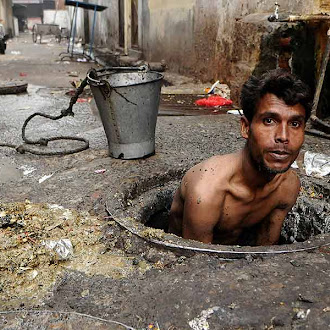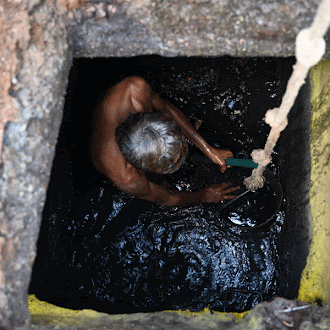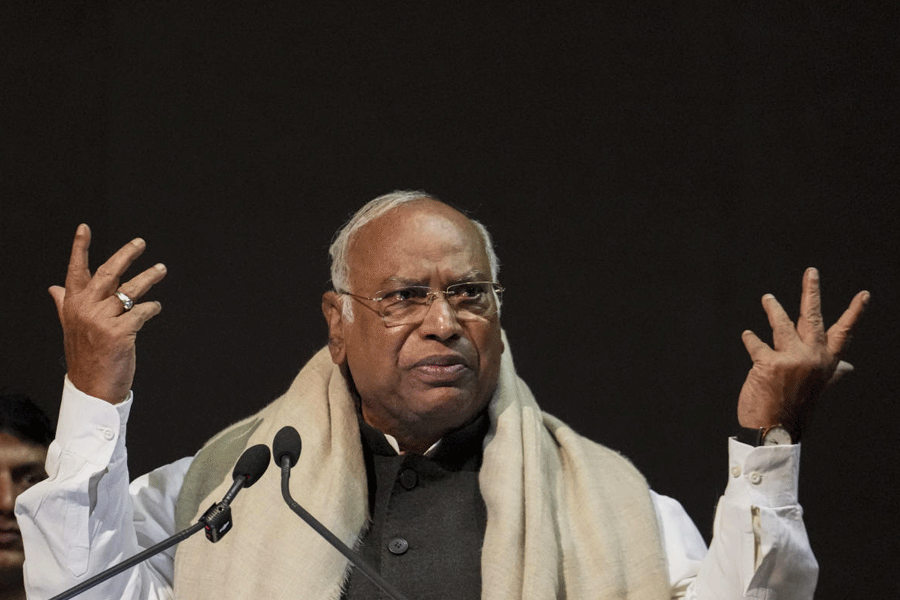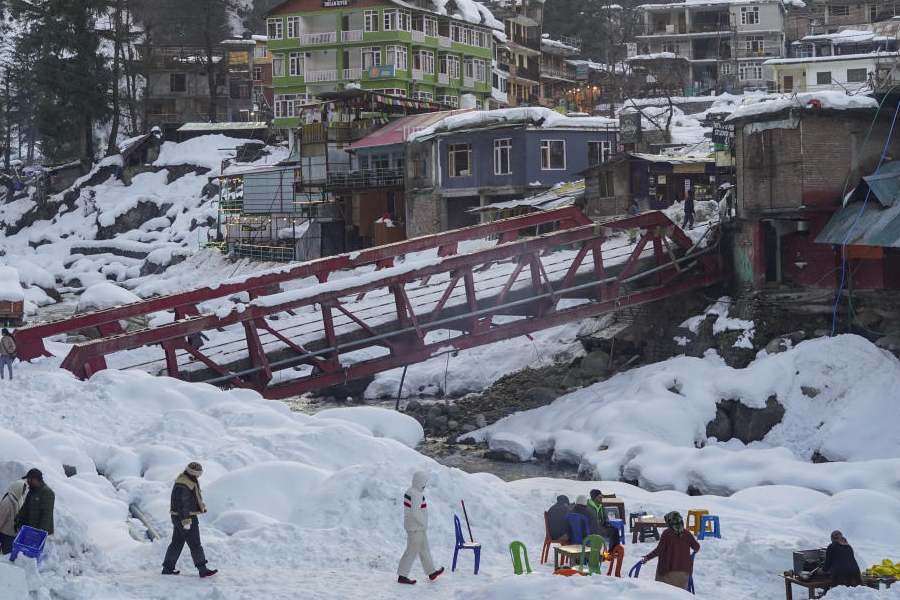Do manual scavengers not exist for the government of India?
“No report of the practice of manual scavenging has been received from States/UTs,” Union minister Ramdas Athawale said in a written reply to a question in Parliament on 22 July.
Manual scavenging is banned across India under the Prohibition of Employment as Manual Scavengers and their Rehabilitation Act, 2013.
According to the 2013 law, “manual scavenger” means “a person engaged or employed by an individual or local authority or a public or private agency for manually cleaning and disposing of or handling in any manner human excreta in an unsanitary latrine, open drain or pit.”
Four days after Athawale’s statement in Parliament, more than 100 sanitation workers were found cleaning excreta with their bare hands at Thane Regional Mental Hospital near Mumbai.
These workers were denied basic wages and mandated health facilities by the Pune-based contracting firm that had exploited them, according to a PTI report.

The government refuses to see the problem, alleged Bezwada Wilson, activist against manual scavenging and caste-based sanitation labour.
“They just don’t want to see what’s there,” Wilson told The Telegraph Online, responding to the Union minister’s reply. “Dry latrines still exist, people are dying.”
This year, he said, already 76 people have died cleaning septic tanks and drains. “Seven died this month,” he added.
Wilson, who is from the Dalit community that has historically been forced into this work, founded the Safai Karmachari Andolan (SKA) in 1993. It is the country’s largest anti-caste discrimination campaign post-Independence.
“The government keeps making blank statements. We’ve sent a memorandum to the prime minister. Nothing changes,” Wilson said. “This is traumatic… Who wants to be in this profession? Absolutely no one if they have a choice. But the problem is, they don’t.”
On July 26, the Sharmik Janata Sangh accused the Thane Regional Mental Hospital of forcing sanitation workers to clean human waste by hand.
“These safai karamcharis are cleaning excreta with their bare hands,” union leader Jagdish Khairalia told PTI. “This is not only illegal but inhumane.”
Wilson said manual scavengers “have no confidence in the government even after 77 years of Independence. It is absolutely anti-constitutional. Caste-based violence… actually anti-human.”
The government’s audit commissioned in 2023 revealed that 54 “sanitation workers” died while cleaning sewers and septic tanks across eight states, including places like Mumbai, Pune, Parbhani and Satara but there has been no official record of “manual scavenging”.

It’s a disconnect Wilson finds maddening.
“It is as if the burden falls on the manual scavengers to prove that they exist and not on the government to recognise that they exist,” he said. “This is where it is wrong. This is not a favour one does if one recognises...it is only normal.”
A 2020 report by the National Commission for Safai Karamcharis (NCSK) recorded 928 sanitation worker deaths between 1993 and 2020. Tamil Nadu and Gujarat had the highest numbers.
Even that, the report admitted, could be an undercount because most workers are contractual hires whose deaths go unreported and uncompensated.
“When I was a child,” Wilson recalled, “it came to me as a shock that people were cleaning human excreta with their hands. That I did not get normalised.”
Wilson’s movement has recorded more than 1,300 deaths of sanitation workers since the 1990s. But he and his colleagues refuse to stop. Despite an “uncaring state,” he said, “we are determined to realise our dream of equal human dignity, regardless of birth.”
This August, the Safai Karmachari Andolan will launch a new national campaign across 46 districts with demonstrations, rallies, bus yatras to once again force India to look at what it doesn’t want to see.
“Who will willingly want to clean human excreta? Absolutely no one,” Wilson said. “Yet someone still does. That should tell you everything.”











